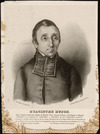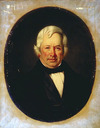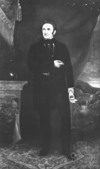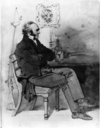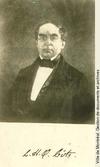of the clergy on political questions. He claimed that the judges, magistrates, and ecclesiastical hierarchy were convinced they had supreme authority in the province and that in exhorting the faithful
Signay, a petition to Pope Gregory XVI from the Montreal clergy in favour of a separate bishopric. When faced with Signay’s refusal to forward it to Rome before obtaining London’s
during the 1820s, on such issues as the alien question, the clergy reserves, and the partiality of justice, Hillier, like Robinson and Strachan, became more deeply involved in the fundamental workings of
.
Herron had an interest in church affairs in Nova Scotia and Lower Canada not uncommon among the Newfoundland clergy under Lambert and Scallan, and indicative of the closer ecclesiastical relationship which
turn created doubts in the mind of the clergy as to the government’s plans. The two groups therefore acted in concert to oppose the administration’s projects. Henry proposed as solutions a greater
perhaps played a role as well. Moreover, he undoubtedly perceived the clergy and crown reserves as impediments to settlement and therefore to the advancement of his own interest. In 1818 he and William
election of churchwardens and the rendering of accounts by the fabriques. The assembly consulted numerous parish priests and, with one or two exceptions, the clergy as a whole was opposed to the
on such issues as political reform, the clergy reserves, the administration of justice, and the alien question. There was one boon for the opposition in Hagerman’s nomination: he was unable to contest
priest Alexander McDonell, of using the colony’s own resources. The scheme: sell its crown and clergy reserves
this young Scottish priest a worthy successor. In Rome the Scottish clergy, with the support of the British government, demanded that one of their own succeed MacEachern, and it was Macdonald whom the
the revolution. In 1790 Fournier was required to swear loyalty to the Civil Constitution of the Clergy. Like his superiors and colleagues among the Sulpicians in Orléans, he refused and chose to abandon
the Missions de France. He incurred the hostility not only of his clergy but also of the civil authorities, and of the public, where liberal opinion opposed to the government’s reactionary policy
throughout his episcopate, was the recruitment of clergy for his mission. Although he was later prone to claim that there had been only seven priests in Newfoundland upon his accession, in his report to Rome
supervise road projects went nowhere. Absentee landowners and the system of crown and clergy reserves were among the chief deterrents to settlement and a viable road network, so in 1825 Felton turned to the
. The same year marked the appearance of John Strachan*’s Observations on the provision made for the maintenance of a Protestant clergy
non-Irish member of its provincial executive. Even though Robert, unlike his Presbyterian brother, had become an Anglican, he still favoured dividing the clergy reserves amongst the leading Protestant
many of their fellow priests who refused to take the oath to the Civil Constitution of the Clergy, which the Constituent Assembly required from 1 Oct. 1791. By good luck they managed to escape
1842 Darveau left with three companions for Baie-des-Canards. The Church of England clergy, who were to make his ministry difficult, were already in the region. The local Indians were confused about what
idea of national independence with the goals of a real social revolution. But his fierce opposition to Papineau, his incessant quarrels with the moderates, and his sharp attacks on the clergy had
colony. Dispute was seen as an impediment to raising capital and proceeding with public works. Cull recommended, for example, that the clergy reserves should be leased to poor immigrants at low rents and


